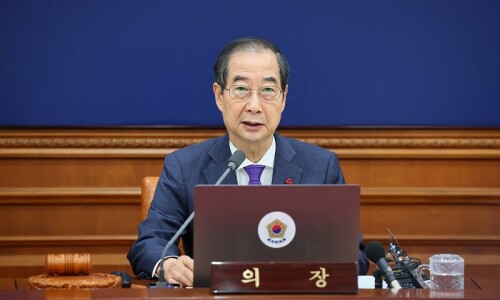ISLAMABAD: Opposing some of the proposed pension reforms as unfair and demoralising to government employees, the Establishment Division (ED) has proposed increasing the retirement age by two years to 62 to contain pension liabilities.
The ED, which is the custodian of the employees’ career path, has strongly opposed the change in pension conditions that seek to work out retirement benefits on the basis of 36-month average of salaries instead of only last drawn salary.
“The proposal that the government employees shall be entitled to a gross pension based on 70pc of average pensionable emoluments drawn during the last 36 months of service before retirement will be a matter of concern for employees who are promoted in the last year of their service,” it said, making it clear that the calculation of pension on the average pensionable emoluments from the last 36 months will place them at a disadvantage vis-à-vis others due to the lower average value.
The ED also opposed penalties on early retirement saying the “early retirement reduction or penalty of 3pc per year is too excessive & needs to be revisited as there are instances where the government servants have genuine reasons to opt for early retirement”.
The ministry of finance had proposed in a summary to the cabinet that a government servant can currently request premature retirement with full benefits but in the future early retirement would be discouraged and a 3 to 10pc penalty would be imposed on the retiring employee.
The ED advised the Ministry of Finance (MoF) to propose “increasing the age of retirement from 60 to 62” as an option to reduce the burden of pension liabilities and warned that MoF should consider this option to avoid adverse impact of proposed pension reforms on the morale of government employees.
Suggestion termed illogical
A ministry official said the ED’s suggestion regarding the increase in superannuation age was illogical given the fact that it may reduce the burden in the head of pension but shift this to the head of salaries and related perks of the in-service employees, particularly those in the higher cadres.
The ED pointed out that rules of business 1973 placed matters to framing of rules on pay and allowances, retirement benefits and other financial terms and conditions of service of government servants primarily on the MoF, but the ED is responsible for regulation of recruitment and determination of any changes in the terms and conditions and statutory rights and privileges of service and administrative reforms.
To contain the annual growth rate in pension liabilities, the ministry has proposed lower retirement benefits. For example, the annual increase in pension is currently authorised as a percentage of gross or net pension i.e. compounding effect which means is based on the last drawn pension. For the future, the increase will be given on gross or net at the time of retirement and the future increase will be indexed to the Consumer Price Index (80pc of CPI of last three years) with a maximum increase of 10pc per year.
At present, the commutation/pension is allowed with 35:65pc ratio but this would be changed to a 30:70pc ratio in the first stage and then to 25:75pc later. Also the restoration of full pension is allowed after completion of a number (mostly 12 years) of years purchased but this would be discontinued in future.
Also, the pension at present is given as per the defined benefit model with the government taking the full burden on budget. This is being replaced with the establishment of a pension fund for which an initial seed amount of Rs5bn was allocated in the FY24 budget.
Moreover, multiple pensions allowed to individuals in case of the death of a spouse or children and father are also being curtailed to only one person. Also, any individual when reemployed after retirement is currently allowed to get pay and pension, both from the federal government. This would come to an end.
“If re-employed, both benefits will not be authorised from federal government i.e. either pay or pension will be authorised during re-employment. An individual has to forego either pay or pension.”
Likewise, at present pension is entitled to the third tier i.e. unmarried/widow/divorced daughter for life. The pensions will now be restricted to the third tier for only 10 years except for the Shuhada family for 20 years and disabled son or daughter for lifetime.
Published in Dawn, January 27th, 2024














































